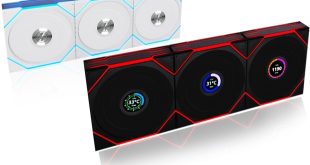Nvidia's GTX680 uses a system of ‘dynamic' overclocking, otherwise known as ‘Boost clocks'.
This Boost clock mode uses a variety of factors to determine whether it is a good idea to run at higher speeds, or not as the case may be. It analyses power consumption, GPU load, temperature and memory load, among other factors.
The driver is coded to make on the fly decisions about what clock speed is safe in comparison with heat output and power use. The automatic overclocking algorithms need to be coded with a variety of safety parameters.
Above, the GPUz screenshot of the Asus GTX680. We can see that the boost speed is set to 1,059mhz. This is the ‘average' clock speed that the core will run under during typical gaming load. The clock speed may actually exceed this speed depending on the given situation.
For overclocking today we used the latest beta of MSI's Afterburner software. We spent a long time playing with the card and analysing how far we could push it without encountering instability. I will say now that we managed to get the card higher than the speeds below, but I did notice very minor artifacting with some games, which would indicate potential problems, long term.
The latest Afterburner works on a “+” figure, indicating speeds above the default clocks. The card has a huge level of headroom available, stable at 1,204mhz core with the memory running at a staggering 7Gbps effective (1756/7,024mhz). We didn't play with voltage tweaking as the card runs at just under 90c with our final settings above.
Incredible results, scoring over 10,000 points. The final score of 10,458 points is around 500 points more than the last generation HD6990. It is only around 1,500 points less than two GTX 580's in SLi!
 KitGuru KitGuru.net – Tech News | Hardware News | Hardware Reviews | IOS | Mobile | Gaming | Graphics Cards
KitGuru KitGuru.net – Tech News | Hardware News | Hardware Reviews | IOS | Mobile | Gaming | Graphics Cards








Price isn’t bad considering the performance. Small audience, but the bragging rights alone mean it is important.
Nice, good power consumption too, which is something they always struggled with, Like Intel currently who can’t compete in mobile space.
bad samples? tskkk. worth the wait, thanks Z.
MSI R7970 lightning is a great card, well priced too. a lot of the reference cooled cards were £500 when they were released.
I was looking to do an upgrade to this but the price and the fact I need a mobo upgrade (actually whole system) as well pulled me away. I would of done it if I wasn’t heading to college next year and I’m going to get a laptop.
Thanks for that review. Big Green just gave AMD a slap in the face with lower prices and more performance. I can’t wait to get my hands on one of these beautiful cards. It will be really interesting to see what the manufacturers come out with for non-reference cards.